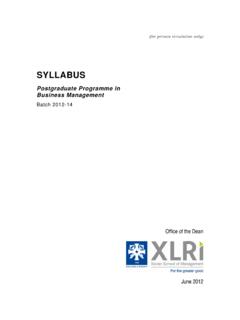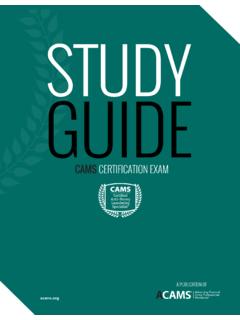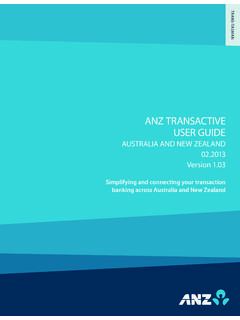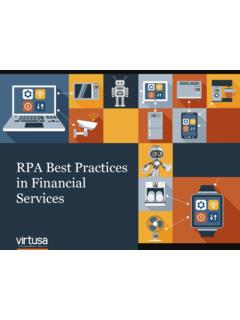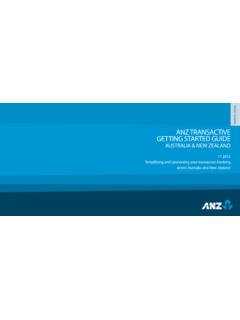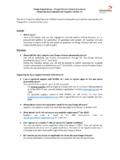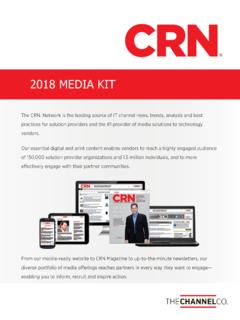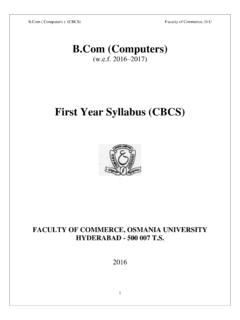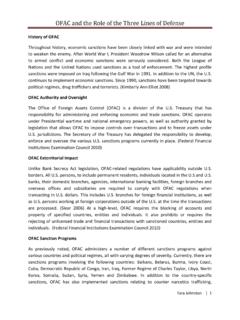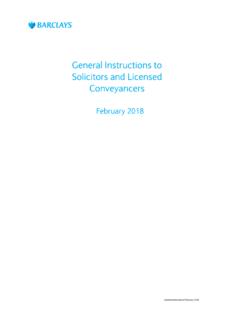Transcription of SYLLABUS - School of Business
1 I. (((((f or private circulation only). SYLLABUS . Postgraduate Programme in Business Management Batch 2012-14 EC. Office of the Dean June 2012. CONTENTS. Page Preface Programme Design and Requirements I. ECONOMICS. CORE COURSES. Macroeconomic Theory and Policy Managerial Economics ELECTIVES. Basic Econometrics Demand and Business Forecasting [also POM]. Development Economics Economics of Human Resources Economics of Information and Network Industries Entrepreneurship and New Ventures [also SM]. Firms, Markets and Global Dynamics Industrial Economics and Competitive Strategies International Business Economics [also Finance]. Managing Private-Public Partnerships [also SM].))))
2 Money Banking and Finance Social Banking and Microfinance Strategic Game Theory for Managers [also SM]. Time Series Analysis [ credits]. II. FINANCE. CORE COURSES. Financial Management-I. Financial Management-II. Management Accounting-I. Management Accounting-II. ELECTIVES. Behavioural Finance [ credits]. Business Analysis and Valuation Capital Expenditure Planning and Control Commercial Banking Commodities Derivatives Market corporate Taxation Financial Analysis, Planning and Control Financial Decision Making under Information Asymmetries [ credits]. Financial Markets Financial Modeling Using Excel Financial Risk Management Financial Technical Analysis and Introduction to Global Intermarket Analysis [ credits].
3 Fixed Income Securities Indian Accounting Standards [ credits]. International Business Economics [also Eco]. International Financial Management Issues in Empirical Finance Mergers, Acquisition and corporate Restructuring [also SM]. Options and Futures Risk Management and Insurance Security Analysis and Portfolio Management Social Finance, Impact Investing & Insurance Structured Finance III. GENERAL MANAGEMENT. CORE COURSES. Business Law [2 credits]. Business Research Methods [2 credits]. Managerial Communication Managerial Ethics [2 credits]. ELECTIVES. Analysis for Managerial Decision Making corporate Image Building Emotional Intelligence and Managerial Effectiveness Marketing Law [also Marketing].
4 IV. INFORMATION SYSTEMS. CORE COURSES. Management Information Systems ELECTIVES. Business and Data Communications Networks Business Intelligence and Data Mining Business Modeling Through System Dynamics Cyber Law Data Structures DBMS with Oracle Decision Support Systems e- Business [also POM]. Enterprise Resource Planning [also POM]. I S Strategy [also SM]. Information Security and Risk Management Intellectual Property Rights Managing Business Process Outsourcing Object-Oriented Programming Software Project Management V. MARKETING. CORE COURSES. Marketing Management-I. Marketing Management-II. ELECTIVES. Advertising and Sales Promotion Business -to- Business Marketing Competition and Globalisation [also SM].
5 Consumer Behaviour International Marketing Internet Marketing [ Credits]. Marketing Decision Models Marketing Fair Marketing in Practice Marketing Law [also GM]. Marketing Research Pricing Management Product and Brand Management Retail Management Rural Marketing [ Credits]. Sales and Distribution Management Services Marketing Strategic Marketing [also SM]. VI. ORGANISATIONAL BEHAVIOUR. CORE COURSES. OB-I: Individual and Group Behaviour in Organisation OB-II: Organisational Structure, Design & Change ELECTIVES. Assertiveness Training Balanced Score Card [also SM]. Building Learning Organisations [also SM]. Consulting to Management corporate Governance Cross-Cultural Management Designing Organisations for Uncertain Environment [also SM].
6 Indian Philosophy and Leadership Excellence Leadership, Influence and Power Management of Creativity Management of Relationships Personal Effectiveness and Self-Leadership Personal Growth Lab Political Behavior & Impression Management in Organizations Stress Management Transactional Analysis Zen and the Executive Mind VII. HUMAN RESOURCE MANAGMENT. CORE COURSE. Human Resource Management [2 credits]. VIII. PRODUCTION, OPERATIONS & DECISION SCIENCES. CORE COURSES. Operations Management - I. Operations Management - II. Operations Research [2 credits]. Quantitative Techniques - I. Quantitative Techniques - II. ELECTIVES. Advanced Inventory Control Advanced Operations Research Demand and Business Forecasting [also Eco].
7 E- Business [also IS]. Enterprise Resource Planning [also IS]. Logistics and Supply Chain Management Materials Management Production Planning and Control Project Management Service Operations Management [ Credits]. Supply Chain Analytics Technology Management [also SM]. Theory of Constraints Total Quality Management IX. STRATEGIC MANAGEMENT. CORE COURSE. Introduction to Sustainable Development and corporate Sustainability [2. credits]. Strategic Management ELECTIVES. Advanced Environmental Management and Green Marketing Applied Quantum Innovations Balanced Score Card [also OB]. Building Learning Organisations [also OB]. Business Networking [ Credits]. Competition and Globalisation [also MKG].
8 Contemporary Business Practices Designing Organisations for Uncertain Environment [also OB]. Entrepreneurship and New Ventures [also ECO]. Entrepreneurship Planning and Development: with special reference to Tech- Entrepreneurs and Professionals International Management I S Strategy [also IS]. International Relations and Management Introduction to Social Entrepreneurship Managing Private-Public Partnerships [also ECO]. Mergers, Acquisition and corporate Restructuring [also FINANCE]. Resource Based Strategy Strategic Game Theory for Managers [also ECO]. Strategic Marketing [also MKG]. Strategies of Co-operation Technology Management [also POM]. Transformation for Sustainable Superior Performance PREFACE.
9 The SYLLABUS Book presents the broad objectives, structure, and contents of our two-year Postgraduate Diploma Programme in Business Management. The SYLLABUS is directional in scope and permits the much desirable flexibility to keep pace with the ever- growing body of knowledge, experiments and explorations in management education with special emphasis towards the human side of enterprise. The programme is recognised by the Government of India, Ministry of Education and Youth Services (Technical Division), New Delhi as per its Office Memorandum No. , dated 2nd January 1970, and is equivalent to MBA. The Association of Indian Universities and All India Council For Technical Education have also recognised the programme as equivalent to MBA.
10 June 2012. XLRI Jamshedpur PROGRAMME DESIGN AND REQUIREMENTS: BM 2012-14 BATCH. The two-year Postgraduate Diploma Programme in Business Management prepares a student for a career in industry and services. The programme facilitates learning in theory and practice of different functional areas of Management and to equip the students with an integrated approach to management function and managerial skills. The courses are designed to develop - (i) the analytical, problem solving and decision making abilities, (ii) the awareness of the socio-economic environment, and (iii) the personality with socially desirable values and attitudes. Towards these objectives and to suit the contents of each course, a variety of teaching methodologies, such as case studies, role-play, problem solving exercises, group discussion, computer simulation games, audio-visuals, are used in the programme.

